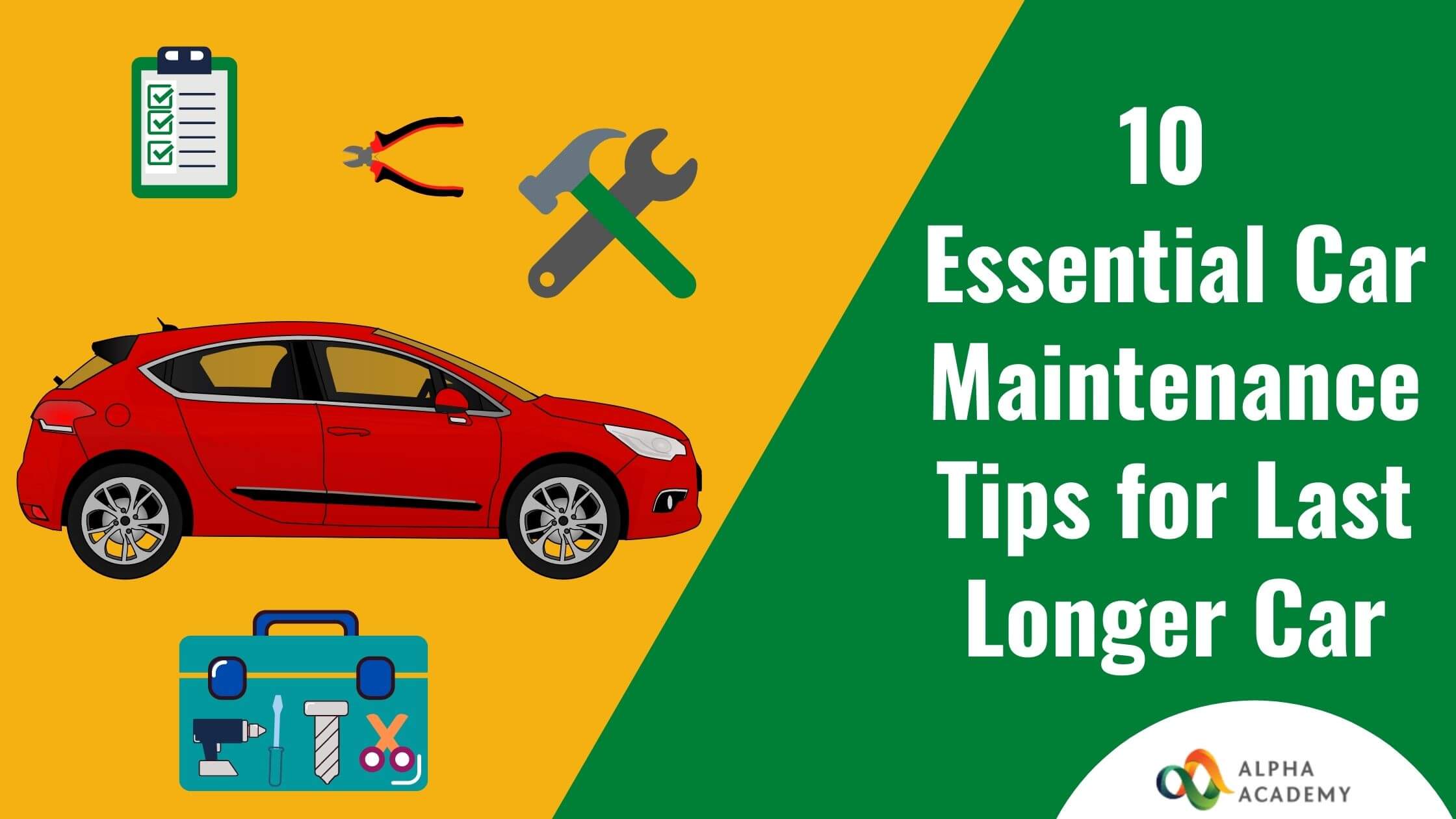Introduction
Owning a car comes with its share of responsibilities, and regular maintenance is key to ensuring your vehicle stays in good working condition. By keeping up with basic upkeep, you can save thousands in repair costs and extend the life of your car. In this guide, I’ll walk you through the top 10 car maintenance tips every vehicle owner should know. Whether you’re a seasoned driver or new to car ownership, these tips will help you keep your vehicle running smoothly and avoid expensive breakdowns. Car Maintenance Tips
1. Check Your Oil Regularly
Your engine’s oil is like the lifeblood of your car, helping to lubricate moving parts and reduce friction. Over time, the oil breaks down and can become contaminated, reducing its effectiveness.
- Action Tip: Check your oil levels every month by using the dipstick under your hood. If the oil looks dark or dirty, it’s time for a change.
- How Often: Replace your oil every 5,000 to 7,500 miles, depending on your car’s make and model.
2. Inspect Tire Pressure and Tread
Tire maintenance is crucial for both safety and fuel efficiency. Under-inflated tires can lead to poor fuel economy and increase the risk of a blowout, while worn-out tread decreases traction.
- Action Tip: Use a tire pressure gauge to check the pressure at least once a month. Refer to your vehicle’s manual for the recommended PSI (pounds per square inch).
- Bonus Tip: Check your tire tread depth by placing a penny head-first into the grooves. If you can see all of Lincoln’s head, it’s time for new tires.
3. Replace Your Air Filter
Your car’s air filter prevents dirt and debris from entering the engine, ensuring optimal performance. A clogged air filter can lead to reduced fuel efficiency and decreased engine power.
- Action Tip: Inspect your air filter every 12,000 miles and replace it if it looks dirty or clogged. Most filters are easily accessible under the hood.
- Why It Matters: A clean air filter can improve fuel efficiency by up to 10%.
4. Monitor Fluid Levels
Apart from oil, your car relies on several other fluids to function properly, including coolant, transmission fluid, brake fluid, and power steering fluid.
- Action Tip: Check fluid levels monthly. Top off any low fluids, and if you notice leaks, take your car to a mechanic.
- What to Watch: Different fluids have different colors. For instance, coolant is usually green or orange, and brake fluid is clear to amber.
5. Test Your Battery
A dead battery can leave you stranded, so it’s important to ensure your car’s battery is in good health.
- Action Tip: Inspect your battery terminals for corrosion and clean them if necessary. You can also test the battery’s charge with a multimeter.
- When to Replace: Most car batteries last between 3 to 5 years. If your battery is approaching the end of its life or showing signs of weakness (like dim headlights or slow engine cranking), it’s time for a replacement.
6. Replace Windshield Wipers
Clear visibility is essential for safe driving, especially during adverse weather conditions. Worn-out windshield wipers can leave streaks, making it hard to see.
- Action Tip: Replace your wipers every 6 to 12 months, or as soon as you notice streaking or chattering.
- Quick Fix: You can also clean the wiper blades with a cloth and some glass cleaner to remove dirt and debris that might be causing poor performance.
7. Rotate Your Tires
Rotating your tires ensures even wear, which prolongs their life and improves performance.
- Action Tip: Rotate your tires every 6,000 to 8,000 miles, or during every other oil change.
- Why It’s Important: Front tires wear faster than rear tires, and regular rotation helps distribute the wear evenly.
8. Keep an Eye on Brake Pads
Worn brake pads can reduce braking power and damage other parts of the braking system.
- Action Tip: Listen for squealing or grinding noises when you brake—this could indicate worn brake pads. If you feel vibrations when braking, have your brakes inspected immediately.
- When to Replace: Brake pads typically last between 25,000 to 70,000 miles, depending on your driving habits.
9. Check Your Lights
Your headlights, brake lights, and turn signals are essential for safe driving, especially at night or in bad weather.
- Action Tip: Walk around your vehicle regularly to check that all lights are working. Replace any burnt-out bulbs immediately.
- Safety Tip: Clean your headlights with a headlight restoration kit to improve visibility if they become foggy or yellowed over time.
10. Don’t Forget Regular Tune-Ups
Even with regular maintenance, it’s important to schedule periodic professional tune-ups to ensure your vehicle is running at peak performance.
- Action Tip: Schedule a full-service tune-up with a trusted mechanic every 30,000 miles. This can include spark plug replacement, fuel filter changes, and system diagnostics.
Conclusion
By following these 10 car maintenance tips, you can ensure that your vehicle runs smoothly, stays safe, and lasts longer. Regular upkeep may seem like a hassle, but it’s far less expensive and time-consuming than dealing with major repairs down the road. Start incorporating these maintenance habits into your routine, and your car (and wallet) will thank you!
Call to Action
Do you have any car maintenance tips that have worked well for you? Share them in the comments below! And don’t forget to subscribe to my blog for more helpful automotive advice and guides.











